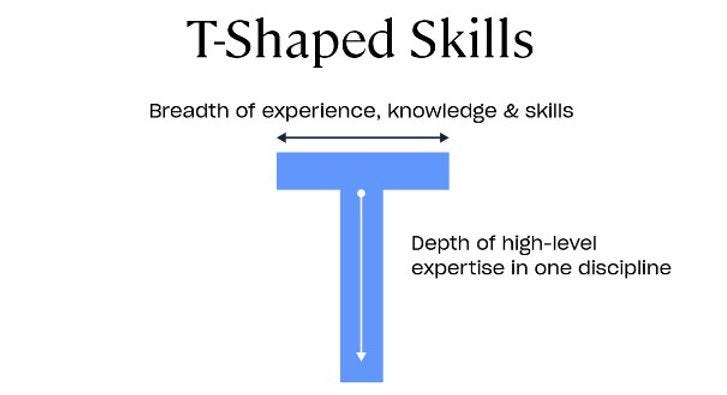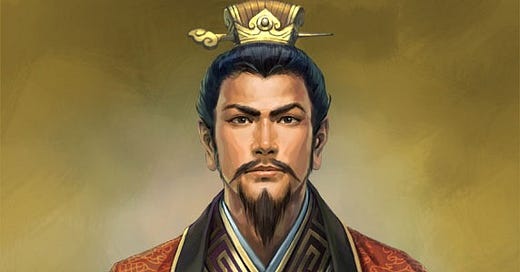Being the top 0.1% is overrated
Why the most successful entrepreneurs combine good-enough skills instead of chasing perfection
The best employees will build AI agents that democratize their expertise.
That's what I heard on the My First Million podcast recently. The best teachers became YouTubers. The best coders will build coding agents. Makes sense, right?
But then I started wondering: Does this mean if you're not in the top 0.1%, you shouldn't even bother starting a company?
The answer hit me while thinking about dancing.
The TikTok dance paradox
I've been dancing for many years. While scrolling through TikTok dance videos, something struck me. The most viral content wasn't coming from professional dancers. The technique wasn't that impressive. But these videos were getting 10M+ views while pros got 50K.
Why were the “best” dancers being outperformed?
Because they understood something the "best" dancers didn't. Viral music trends. Timing. What makes people hit share.
The professionals were too busy perfecting pirouettes to notice the game had changed.
That's when it clicked. What if being "the best" at one thing actually blinds you to bigger opportunities?
This pattern is everywhere in tech
Elon Musk isn’t a battery scientist or car engineer. He saw cars could go green and combined that vision with relentless execution. Environmental mission + business acumen + manufacturing = Tesla.
Brian Chesky from Airbnb wasn't a hospitality expert. He had an industrial design degree from RISD. Struggling to pay rent in San Francisco, he rented out air mattresses on his apartment floor to travelers. Desperation + design thinking + customer centricity = Airbnb.
Roblox's founders weren't gamers. They came from physics education software. David Baszucki noticed kids using his physics simulator to build cars and blow things up instead of running experiments. Education + creativity + fun = billion-dollar platform.
Warby Parker founders? Not optometrists or fashion designers. These were four Wharton MBA students frustrated by the high cost and limited selection of eyewear. E-commerce + eyewear inefficiencies + direct-to-consumer potential = Warby Parker.
Notice the pattern? None of these founders were the "best" in their eventual industries.
Building a business is like building an empire
This principle isn't new. Business thought leaders love quoting Sun Tzu from The Art of War like "Know yourself and your enemy." But there's another Chinese strategist worth studying.
Liu Bei ruled one of the Three Kingdoms around 220 CE. He wasn't the best at anything. Not the strongest warrior. Not the smartest strategist. Not the most charismatic politician. His kingdom started out as the weakest of the three. But he was brilliant at attracting talent, famously “begging” the renowned strategist Zhuge Liang three times before recruiting him.
Liu Bei combined "good-enough" skills - charisma, character, military leadership - into something legendary. He's immortalized in Romance of the Three Kingdoms, one of China's four classic novels. Not because he was the best, but because he mastered the art of synthesis.
The most valuable opportunities exist at intersections that traditional experts can't see.
The intersection advantage
The "best" teacher knows pedagogy inside out. But do they understand YouTube algorithms? Audience retention graphs? The business of content?
The "best" coder can optimize algorithms. But can they spot which business problems are actually worth solving?
Success increasingly comes from combining good-enough skills across domains. Not from being 0.1% at one thing.
But you still need depth: "T-shaped skills." Deep enough in one area to make credible decisions. To know what's hard. But also breadth, multiple perspectives, pattern recognition across domains.

Essentially, be deep enough to be dangerous, broad enough to be interesting.
We're in a unique moment
Traditional expertise hierarchies are crumbling. AI lowers technical barriers while raising the importance of judgment, taste, and synthesis. The bottleneck shifted from "Can you execute?" to "Do you know what to execute?"
(Yes, execution still matters. And always will.)
This creates opportunities for people who aren't the best at any one thing but can see combinations specialists miss.
AI is accelerating this shift. It's commoditizing pure technical skills while amplifying business judgment and taste. The intersections that matter now?
Sales expertise + customer behavior understanding + prompt engineering = AI sales automation founders.
Healthcare knowledge + business skills + LLM understanding = medical AI entrepreneurs.
But wait…doesn't Malcolm Gladwell say you need 10,000 hours to master something? I am not saying expertise doesn't matter. I mean expertise alone isn't enough. Yes, some fields still require deep specialization, ex: brain surgeons need years of focused training, Olympic athletes need 10,000+ hours of practice.
But in business? David Epstein in Range argues that generalists increasingly outperform specialists in complex, rapidly changing environments.
Even in science, the pattern holds. Wharton professor Adam Grant cites research showing that Nobel Prize–winning scientists are dramatically more likely to have artistic hobbies than their peers (22x more likely to perform as actors, dancers or magicians, 12x more likely to write fiction or poetry, and 7x more likely to draw or paint). Diverse pursuits foster the innovative thinking that leads to breakthroughs.
How to find your intersection
Draw three circles:
What you're known for - What do people come to you for advice about?
What you're passionate about - What do you explore in your free time?
What you've done - Your education, work experience, unique life experiences
Your intersection lives where these overlap. Map it. Own it.
My intersection? Interest in tech + finance background + love talking to people = VC. Not the most technical. Not the best financier. But at that specific intersection? That's where I create value.
Don't worry about being the best at everything
Focus on being uniquely valuable at the intersection of things you're good at and love doing.
Sometimes the most powerful position isn't at the peak of one mountain.
It's in the valley where several mountains meet.
That's where rivers flow. Towns get built. Civilizations thrive.
What's your intersection?





